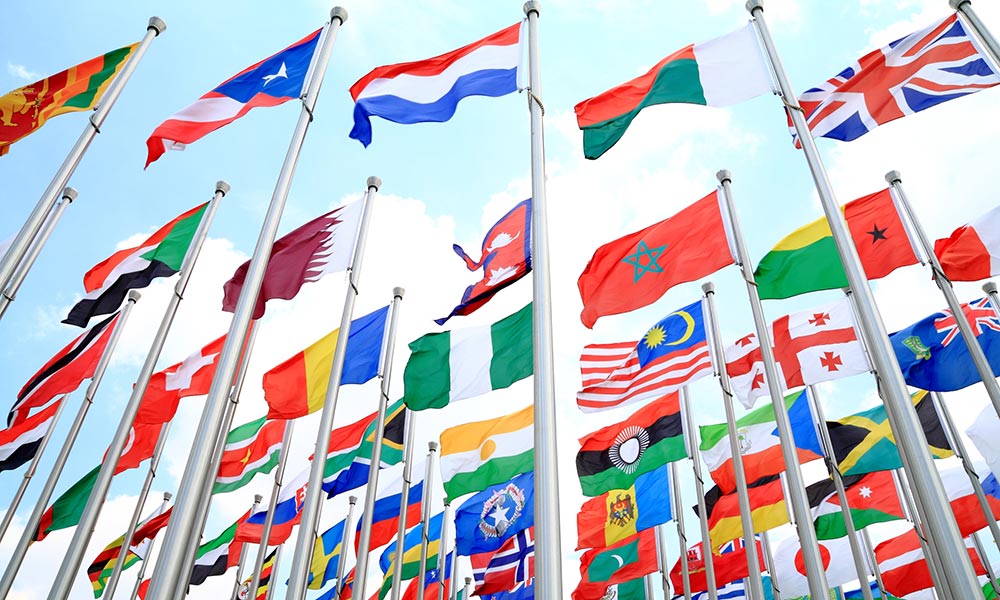
Speaking the Language: Why You Should Think Localization
Looking to go global? The hard part might be tailoring that approach for each country. Fortunately, localization options exist for both the web and social media—and they can help you expand your online reach in new regions.
Sometimes, the audience you need to reach is the audience that doesn’t speak your language.
That’s what actor Robert Downey Jr. recently learned when promoting Iron Man 3.
While the film’s success is a definite thing in most parts of the world, one area of box-office dominance that was particularly important to Marvel Films was China. And as a result, even though Downey isn’t even a Twitter user, he did sign up for the Chinese equivalent—Sina Weibo.
He admittedly hasn’t posted much so far. The trademark wit that defines his Tony Stark character doesn’t translate quite as easily to a social platform where Downey doesn’t even speak the language. But that said, there’s something really interesting about this concept that goes beyond a major Hollywood star.
It’s that globalization goes beyond simply having a global presence. It means reaching potential members online—in their own language.
And let’s face it, if you’re going international, the best way to expand that reach is through language—particularly through your web and technology resources.
Why This Matters
While you may not necessarily need a celebrity spreading your association’s message in a non-native tongue, globalization nonetheless has significant benefits for many associations—as my colleague Katie Bascuas noted a couple of months ago, a recent GlobalStrat study shows that organizations with an international growth plan are 50 percent more likely to experience said growth.
And let’s face it, if you’re going international, the best way to expand that reach is through language—particularly through your web and technology resources.
Your Localization Options
So let’s say you want to have a German edition of your site. Problem is, creating a localized version of your site’s legacy content might be a little too challenging to do on your own. Fortunately, companies focused on localization can make the task easier.
One startup drawing attention in this field, Smartling, has found success among startups by using a crowdsourced approach to localization. The company—which counts enterprise clients as all over the map as social network Foursquare, oil company Shell, and … uh, Weekly World News—hits the issue at both ends of the spectrum, offering automated approaches for smaller customers and more in-depth approaches for larger ones.
Smartling is far from the only game in town. The Globalization and Localization Association, a group focused on bringing together localization professionals, has a list of companies available on its website. If your association is focused on a specific market, it may make more sense to choose a company that specializes in that market first.
The Nuances of Social Abroad
Don’t forget about social media. In certain parts of the world, Twitter and Facebook may play second fiddle to localized social networks. Some quick notes:
Many Western social networks are blocked in China, so Sina Weibo and Tencent Weibo are both worth researching. Similarly, Russia’s Vkontakte, which quite literally looks like Facebook did seven years ago, is far more popular than Facebook in the country. (Also, since we’re on the celebrity tip here, I should point out that Tom Cruise is a Vkontakte member.)
If you’re researching a certain international market and looking to focus your approach, the online project Digital in the Round does a great job of explaining social networks unique to certain regions of the world. These networks often have different approaches and nuances compared with U.S.-based networks.
Depending on your resources, there are companies that can help you tailor your social approach abroad as well. Downey, for example, launched his presence with the help of Fanstang, a product of the China Branding Group, which has helped build social presences in China for many celebrities and also offers services for businesses looking to expand their Chinese influence. And the tech startup Transfluent offers a service similar to Smartling for social platforms; it recently helped the rock band 30 Seconds to Mars launch a new single in numerous languages at once.
If you already have an international presence and are thinking social, consider calling on foreign volunteers, who can help run internationally focused social presences with an innate understanding of both your industry and the region’s nuances.
What sort of efforts have you made to take your association’s brand global, and what sort of pitfalls have you run into—resource-wise or otherwise? Really curious to hear your thoughts.






Comments